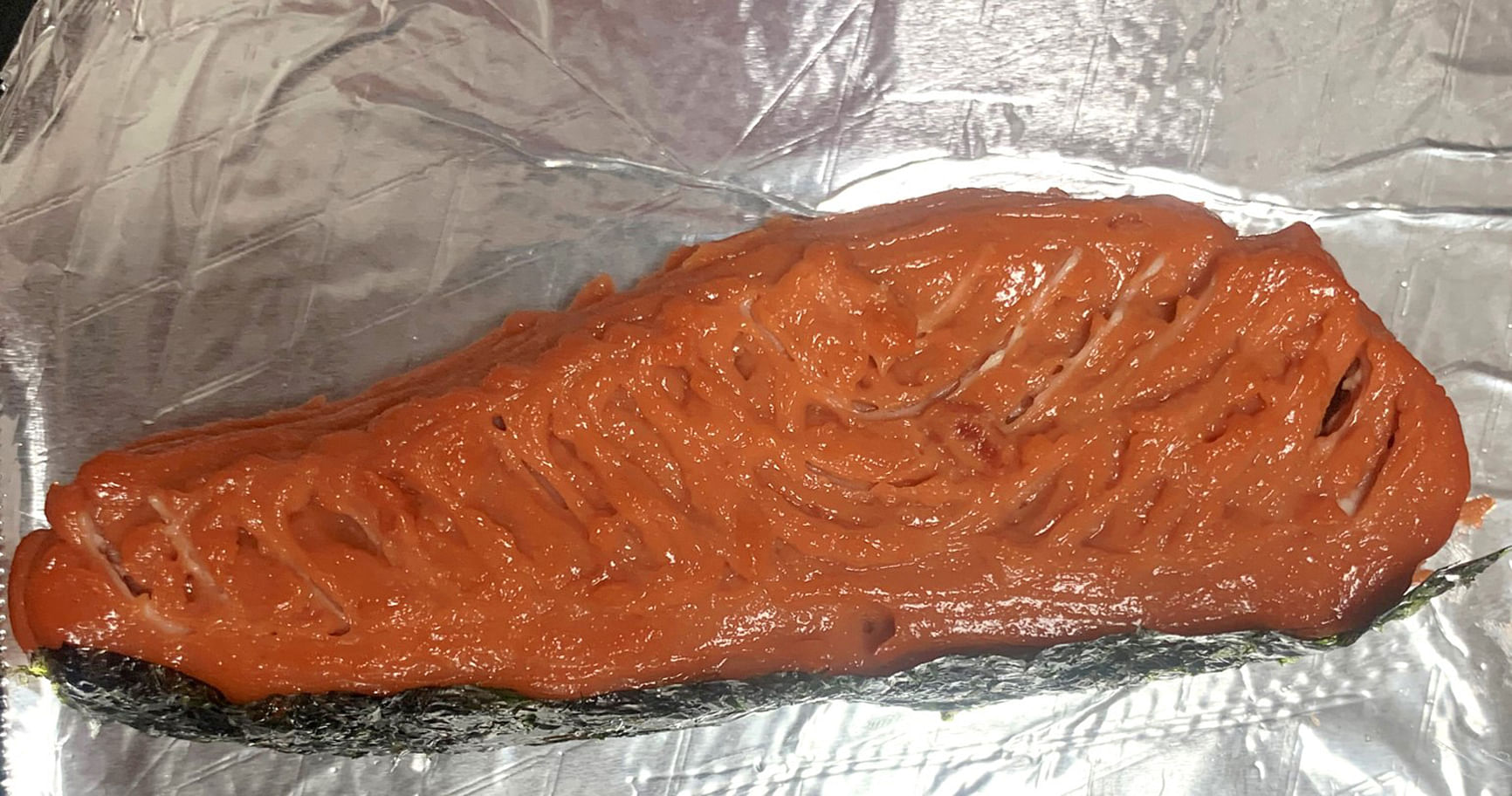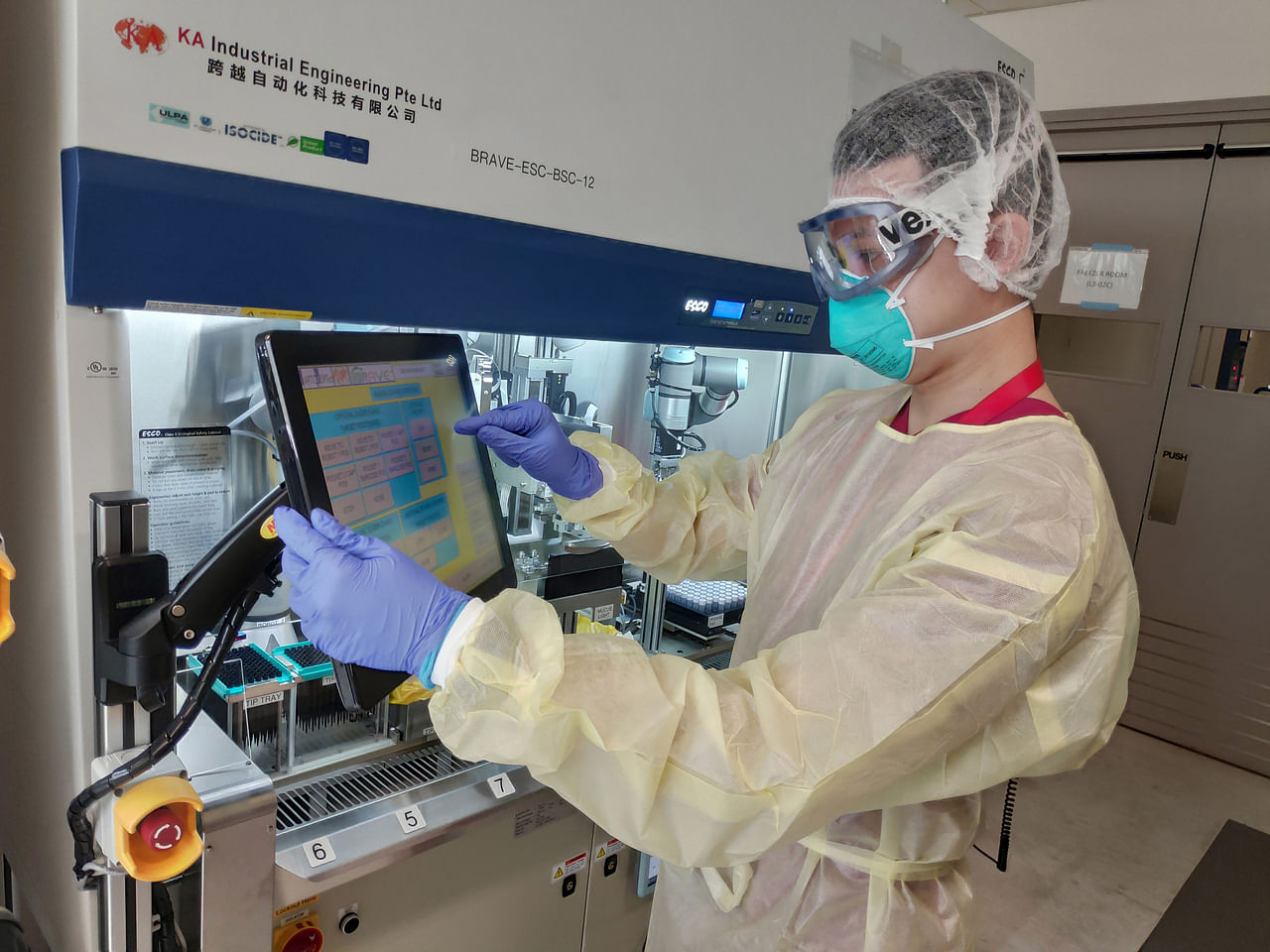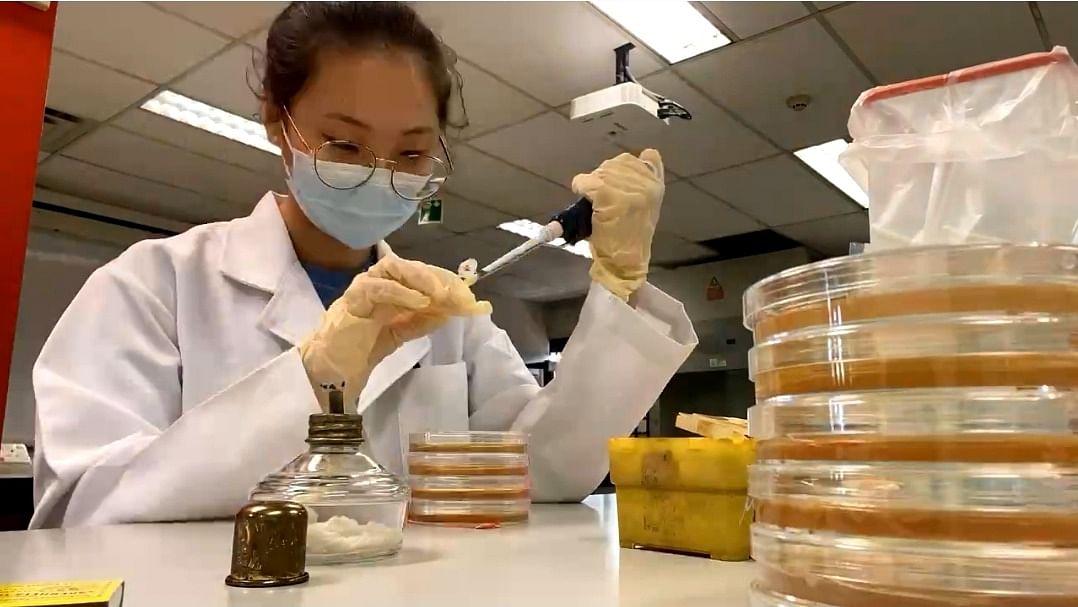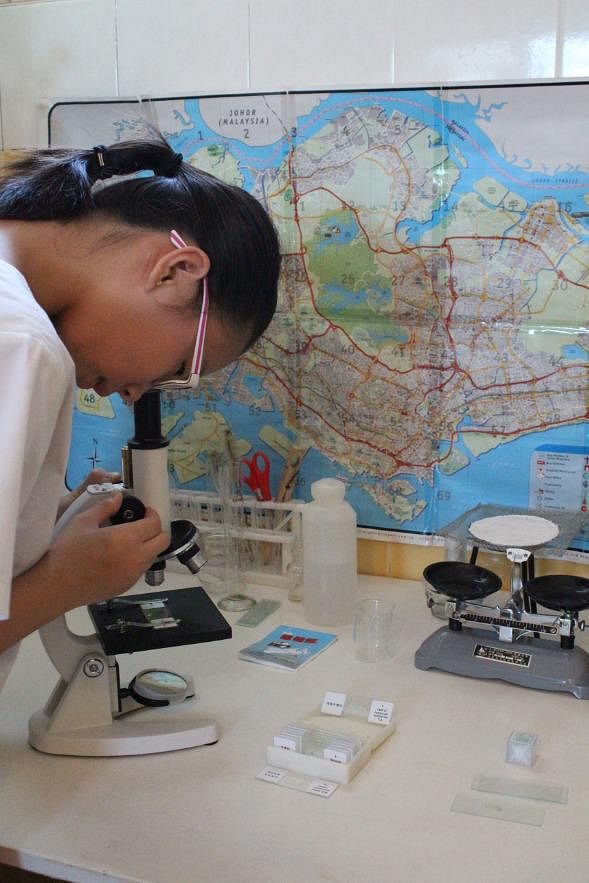SINGAPORE - While watching documentaries about farmed animals with her family years ago, four-year-old Uma Tay was saddened by the plight of cooped-up cows and chickens.
"I wondered why the farms were so crowded and why they were crammed together. Do they even get to see the sun? Do they just spend their lives being caged? All they do is produce food (for people)," she said in an interview with The Straits Times on Wednesday (Aug 4).
Growing up, Ms Tay wondered if there were more sustainable, cleaner ways to produce food.
Her opportunity came in university when she made 3D-printed vegan salmon using pureed red lentils and pea protein.
The 23-year-old is one of 69 young aspiring scientists who received scholarships from the Agency for Science, Technology and Research (A*Star) on Wednesday.
This year marks 20 years of the A*Star scholarships, with more than 1,700 PhD holders and postdoctoral scientists emerging through its scholarships and fellowships.
Ms Tay received the A*Star Graduate Scholarship, and will be pursuing a PhD in food science and technology at the National University of Singapore (NUS).
Wanting to create plant-based "fish" that has the same flaky and layered texture as real fish, she worked on 3D-printing salmon as part of her final-year undergraduate project at NUS.
She felt that plant-based foods could go beyond bite-size canned mock meat, which may not have the same texture as real meat.
The red lentils replace the fish flesh, while the white pea protein acts as the connective tissue. Printed in alternating layers, the "fish" imitates the pink and white patterns that salmon is known for.
And to ensure that her plant-based fish is not compromised on the high levels of Omega-3 that salmon is famed for, Ms Tay blended her lentil puree with camelina oil, which is rich in Omega-3.
The "fish" also comes in the same shape and size as a regular salmon, thanks to a computer-aided model that Ms Tay designed with a software that the food 3D-printer could follow.
Her plant-based salmon earned her the outstanding undergraduate researcher prize in NUS. And a local company is interested to license her technology to produce plant-based "salmon" and "pork belly".

Ms Tay's PhD research will focus on unlocking gelling agents from plants such as soya, lentils and legumes - to replace gelatin derived from animal body parts.
Gelatin is a gel-like food ingredient commonly found in gummy bears, pasta and salad dressing.
"In a more sustainable way, we want to use plant proteins that can resemble the gelling behaviour of gelatin," Ms Tay added.
Another A*Star graduate scholarship recipient is Mr Umar Mohamad Sahari, 25, who has spent the past year helping with the nation's daily efforts to process Covid-19 swab samples and identify positive cases.
Since June last year, he has been overseeing 40 lab technicians at a Covid-19 testing facility set up by A*Star and the National University Health System, called the Stronghold Diagnostics Lab.
He is in charge of the lab's work processes and ensures that the processing of samples is done smoothly, with protocols in place.
When Mr Umar started out at the job, the discomfort of wearing personal protective equipment and sweating profusely between seven and nine hours a day was an issue, but he and his colleagues got used to it over time.

The biomedical sciences graduate had done labwork with other living things before, but he had never worked with infectious specimens before this.
Therefore, he had the initial fear of accidentally getting infected while handling the swabs in the lab.
Sometimes, the lab was hit with a higher workload when more batches of swab samples arrived without a heads-up, especially during periods when testing was in full swing.
During those times, he had to adjust the lab's manpower and switch to automation to speed up some of the lab's workflow.
Mr Umar will be pursuing a PhD at the NUS Yong Loo Lin School of Medicine, where he will focus on rare genetic diseases.
"Rare diseases such as frontonasal dysplasia don't get much attention from many pharmaceutical companies and other labs," he noted.
Frontonasal dysplasia is a rare disorder that leads to abnormalities in the head and face before birth.
"By understanding the origins of such diseases and how they affect the body, you can use that knowledge for more common diseases such as cancer," he said.
National Science Scholarship recipient Summer Li grew up doing science experiments with her mother, a former researcher who developed test kits for diseases such as dengue, hepatitis E and tuberculosis.
Mother and daughter, then nine, had a secret lab at home - in a spare bathroom - equipped with a microscope, pipette, beaker and a weighing machine.
"My mum purchased a book titled 500 Fun Experiments For Your Kids, and we would work on the experiments," said Ms Li, 20.

She also has fond memories of collecting water samples at the beach with her mum, to run them through the microscope.
"Sometimes we did not see anything, but when we finally did, it was incredible to see the micro-organisms moving about under the microscope. These 'eureka' moments hence fuelled my interest in biology."
Ms Li will be reading biological sciences at Imperial College London.



